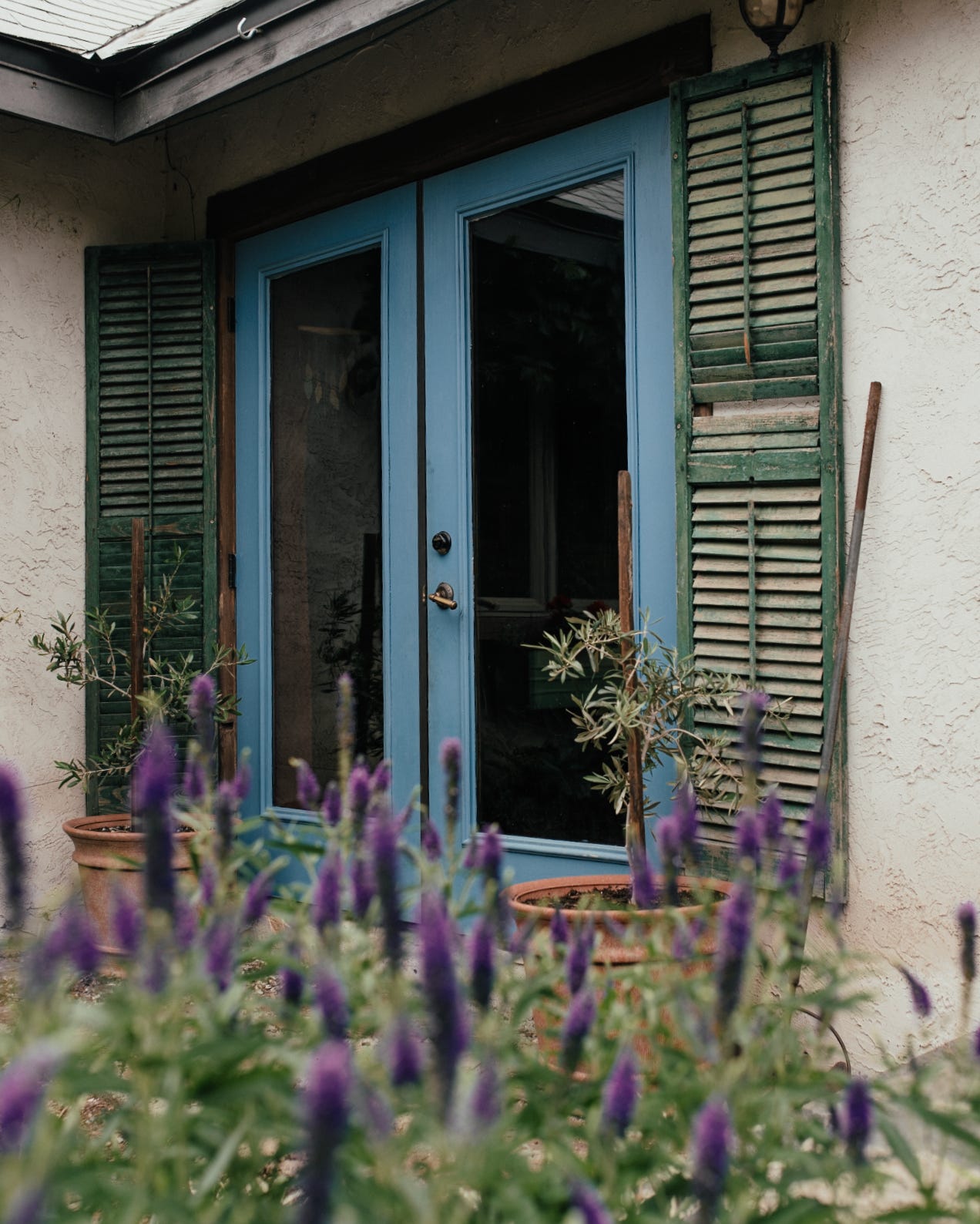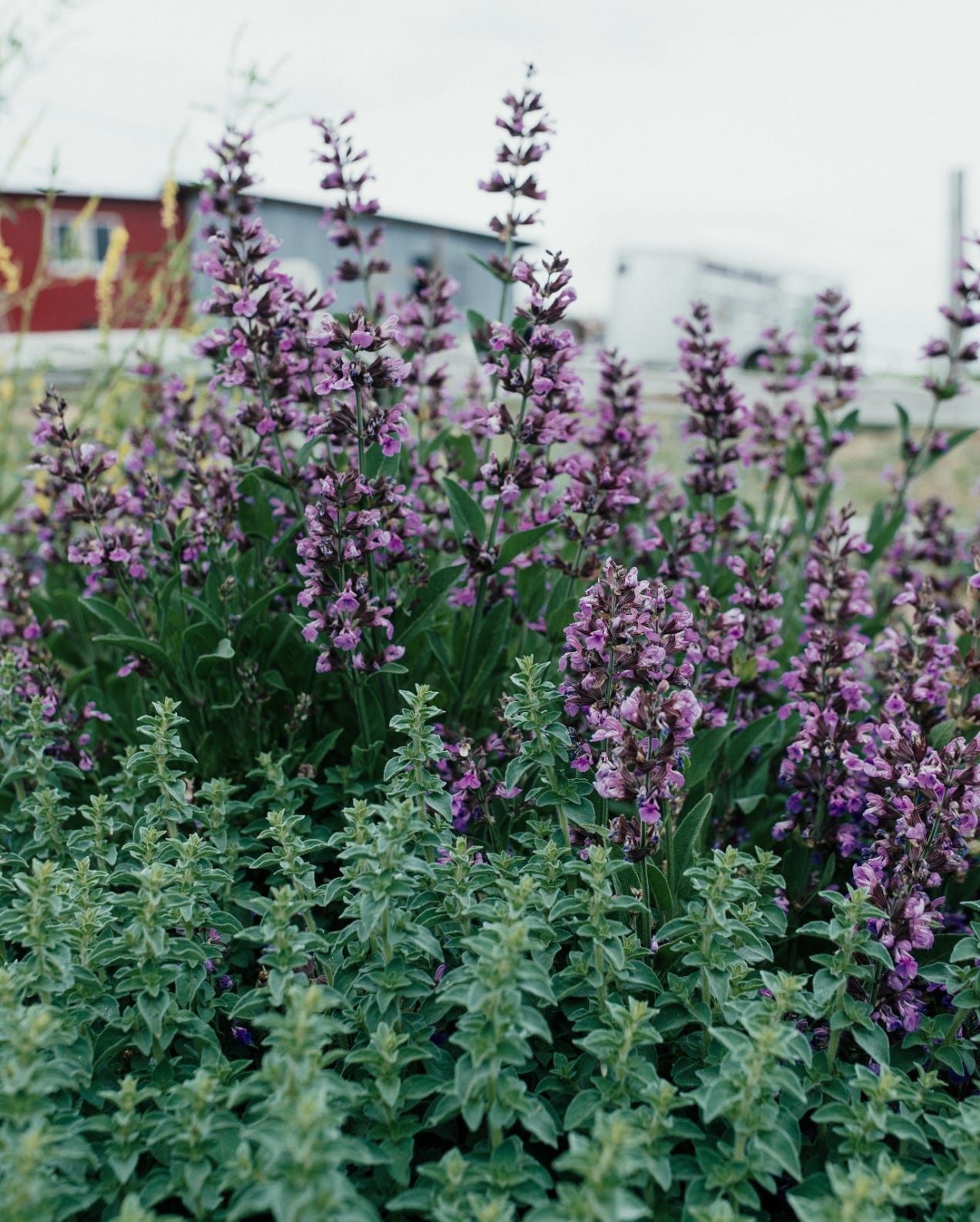Hello my friends,
Stuart roused me from a deep sleep - I always seem to slip into the richest pockets of sleep moments before (though it could be hours) Stuart gently nuzzles my shoulder, offering me the peace offering that is a steaming Americano. He knows the affect of such an offering, and knows that any ask is safe, regardless of how deeply entrenched in early morning sleep I am. Today, the ask of getting up is coupled with the peace offering of espresso and volunteered man-power to help me work in the vegetable garden.
Yes, he’s a man who offers up espresso and garden help. And yes, I know his worth.
In a few short sips, I managed to wrangle on my worn overalls, eyes still stingy from sleep but equally excited at the prospect of hot coffee and weeding help. Despite not having a homeschool schedule for the summer, we still find ourselves pulled from bed before the sun breaks the crest of the mountains that surround our little valley. To live in a high-mountain desert is to live through frustratingly hot summers and therefore, farmers and gardeners alike begin their day when the cool of the night still lingers in the air enough to make the manual labor physically possible.
As we stumbled up to the market rows, I can hear the plunk, plunk of cherries hitting the bottom of picker buckets - a sound that most anyone who grew up in our valley will recognize. June and July are cherry harvest time and the clanging of ladders, hum of tractors, and soft drop of cherries into empty buckets is a summer soundtrack to the rural parts of town. We were far from the first ones on the scene this morning. I could tell by the filled cherry lugs lined up in the orchard rows that the pickers had been at work for at least a few hours - did they start at 3:00am? They must have.
Their dynamic and expressive conversation, often woven with a chorus or two of song, gave our garden work a backdrop. Even though we were working through our garden rows, and they were six feet up in cherry trees on the neighbors land, we worked alongside each other without saying anything at all - each putting our hand repeatedly to the organic motion of harvesting.
This early morning time on the farm is what I consider the “butchers cut”. That is, the pieces of harvest that no one gets to see or touch unless you’ve put your neck on the line for the work. Saved for the one who is invested.
This is the sound of gravel under feet, before the world is making noise. The soft sounds of the lambs as they look up from grazing and notice our presence. The way the light hits the tall hollyhocks in the garden, and the bumble bees that travel loudly around before the heat of the day sets in. It is the clouds moving slowly across the wide Washington sky before anyone else (besides the pickers of course) are awake to see them and the way one learns to read the weather patterns that will inevitably come through that day (today, I can tell is a light rain). Perhaps my favorite butchers cut of early morning on the farm is the birds. Before the dog and playful children push them to the edges and treetops during the day, they own the morning. Robins bath themselves in the pond, chickadees sing in the rose-bush that they’ve claimed as their home, and goldfinches swoop through chaotically - happily picking aphids off the tall sunflowers as they await the arrival of the seeds later this summer. The harvests this time of day are crisp and renewed from the chilled nighttime temperatures - the herbs at their most fragrant, the flowers at their sturdiest. There is a vibrancy to the stillness and soft lighting of the early morning hours that offers the gardener hope - one simply doesn’t feel this in the bleaching sun, heavy heat, and harsh angles of the late afternoon.
Perhaps this is why the scriptures says “…my mercies are new every morning…”. If it said “…my mercies are new every afternoon…” we’d be less inclined to believe it. By afternoon, the vibrancy, stillness, and hope of the early morning has faded.
When we moved onto our property nine years ago, there was a lilac bush, a dilapidated deck that housed nothing but black widows, and a small meadow of leftover orchard grass. Every stem, blossom, and tree here now has been planted by us - and the birds, of course, who are nature’s greatest seed spreader. Though we live in an actual high-mountain desert, our oasis is anything but. It now is home to hummingbirds, what seems like a hundred different varieties of bees, flocks of birds, and endless pollinators - not to mention quite a few chickens, sheep, and a cow or two. A micro-climate and micro-world has been created on our two acres of land. It is during the early morning hours that one can see it at its best.
These are the pieces that we own as our own. Friends, visitors, and travelers who come to walk the gardens miss out on most. These are pieces reserved just for those of us who labor here, every day. The pieces one sees simply by investing in early mornings and observation. These are the butcher cuts. The pieces of the offering that we keep for ourselves, preserving them carefully them carefully, tucking them into our memory and hearts, keeping them for all time.
I hold onto these tightly, while holding the entire experience with an open palm. Life is anything but guaranteed - this land, these gardens, none of it is final. We are not it’s first owners, nor will we be the last. We are its caretakers and builders in the interim, hands to plow and hoe, simply asking to partake in the temporal benefits and riches of its offerings.
And it has given us many if we arise from our slumber and train our eyes, and souls, to see.
Cheers,
Shaye










Lovely, Shaye. Noticing and observing have become their own art form in our modern era and your writing is proof
This article was itself an Oasis.